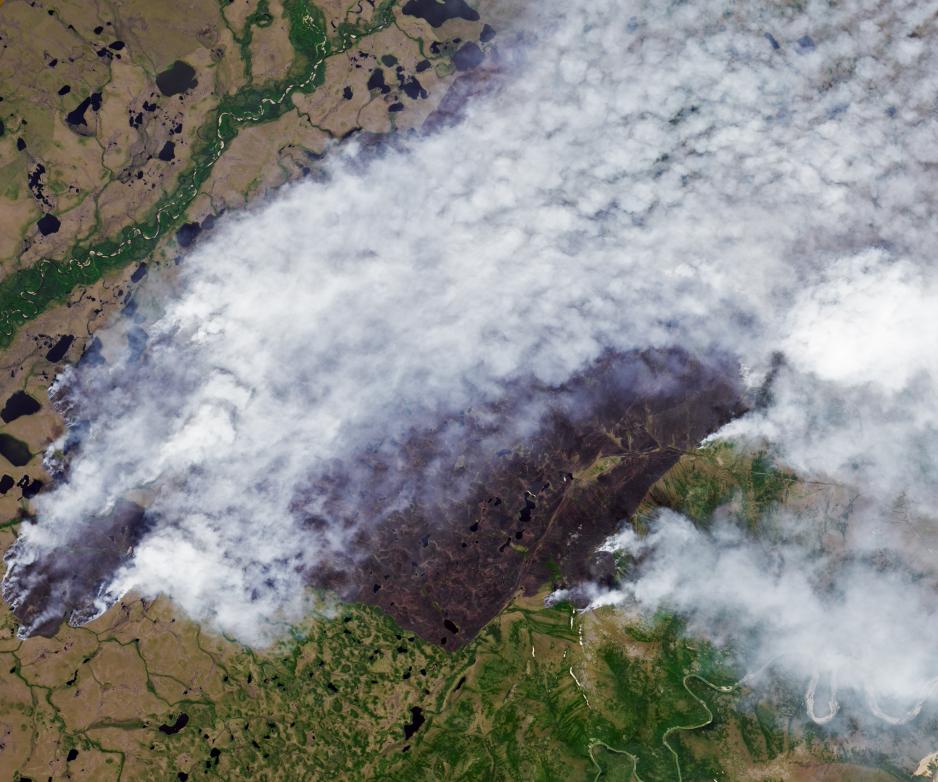Newsletter: Scorching Arctic Summer

Siberia wildfires: Plumes from one of five large fires burning around Penzhina Bay (northwest of the Kamchatka Peninsula), July 4. This is the second consecutive July that intense heat and wildfires have ravaged this region. An international group of scientists recently published a study noting that the prolonged heat waves in Siberia in 2020 would have been "almost impossible" without the influence of human-induced climate change. (NASA Earth Observatory images by Lauren Dauphin).
Dear reader, we have had a summer marked by heat records, floods, fires and evacuations. “This is the new normal”, climate scientists say.
We, the staff of High North News, are back to work. Not back at our ever-so-temporary home offices, but at our real offices, with people and coffee machine and the whole shebang. We have spent the first week enjoying a sense of normalcy, as well as updating us – and you – about what goes on in the Arctic.
In brief; the world is on fire.
A new report warns of the significant global consequences of a heating Arctic and demands immediate restoring of the Arctic to make sure the world remains habitable for future generations.
“Arctic societies must plan for and adapt to increasing occurrences of forest fires”, says scientist Marianne Tronstad Lund at CICERO to High North News.
We simply have to learn to live with it.
Presence in the Arctic
Other news from this first week of August is the US’ continued efforts in Alaska.
During a recent visit to Alaska, Secretary of Defense Lloyd Austin emphasized the strategic importance of the state to Arctic and Indo-Pacific operations.
Enhancing presence and cultivating partnerships in the Arctic are vital to ensure that the region does not become a contested space, the US Navy argues. If the USA does not manage to maintain its presence in the Arctic, it will “cede the space to the Russians or anybody else”.
Arctic fishing
This week’s research news is about joint international research aiming to trace the types of fish located in the Arctic and what levels they are currently caught at.
The USA, China, Japan and Russia are amongst the countries currently planning joint research on fish in the Arctic Ocean in an attempt to establish international regulations.
And in Norway, figures from the seafood export industry are nowhere near being gloomy. The Norwegian Seafood Council reports of the best-ever first half of the year for the Norwegian seafood export industry (Norwegian only), and the trend continues into July.
Arctic railway go-ahead
The Swedish government has given the go-ahead for completing the railway line between Skellefteå and Luleå in Northern Botnia country. This will in reality be the final step of the Umeå-Luleå project in the Swedish Arctic.
And after being postponed, the Arctic Race of Norway finally commenced this week (Norwegian only). For the first time ever, the bicycle race will cross state borders.
We hope you have had a great summer, despite extreme weather and the pandemic. Thank you for following, and feel free to tip us!
Best regards,
Trine Jonassen,
News Editor, High North News

